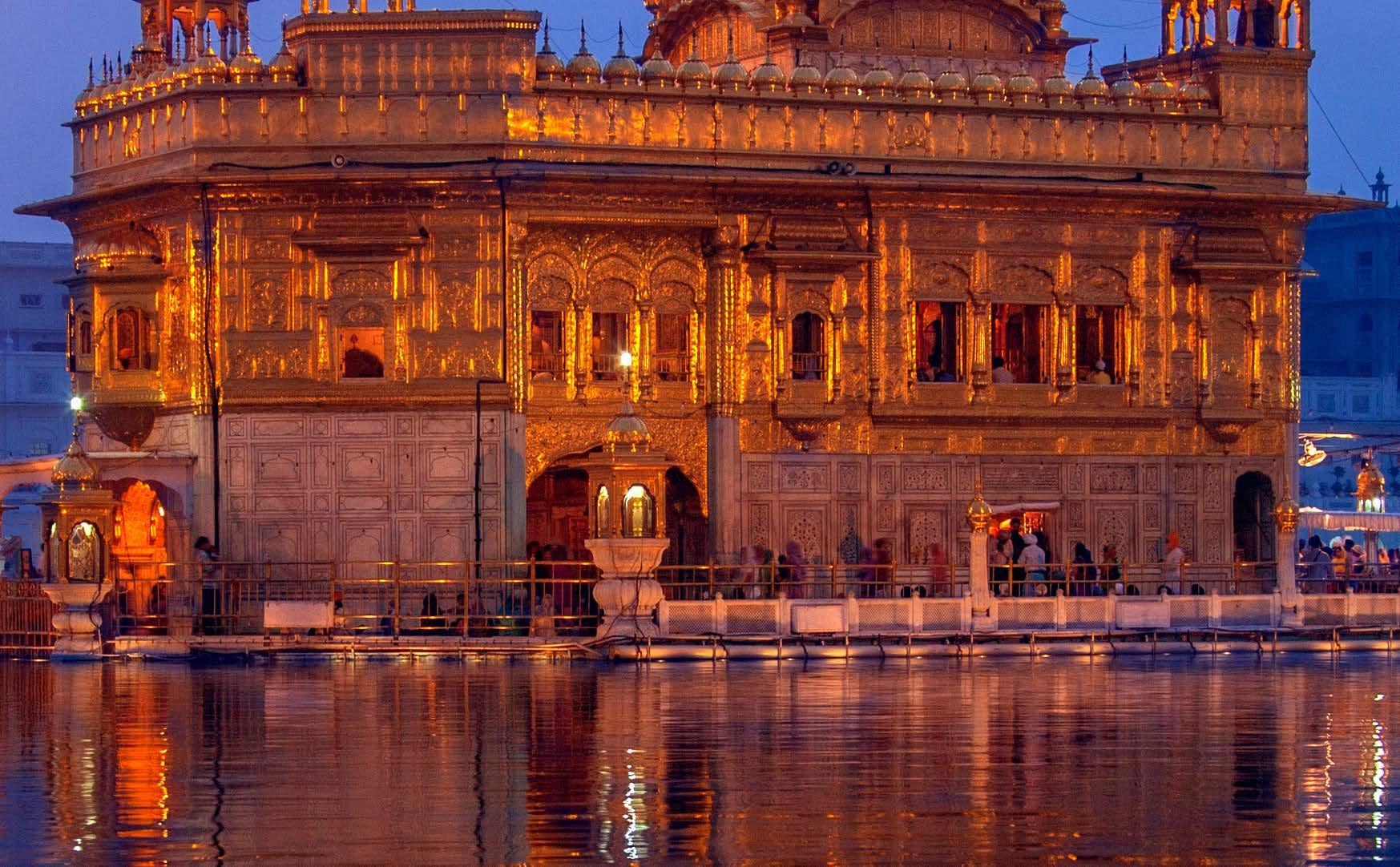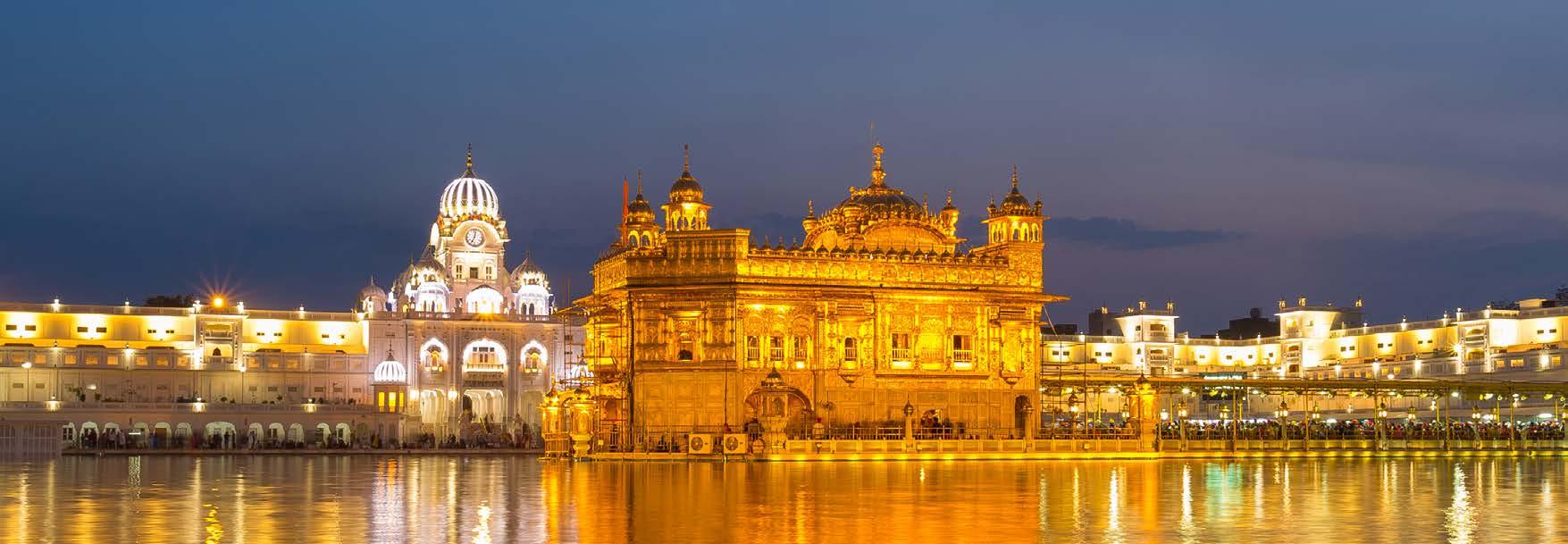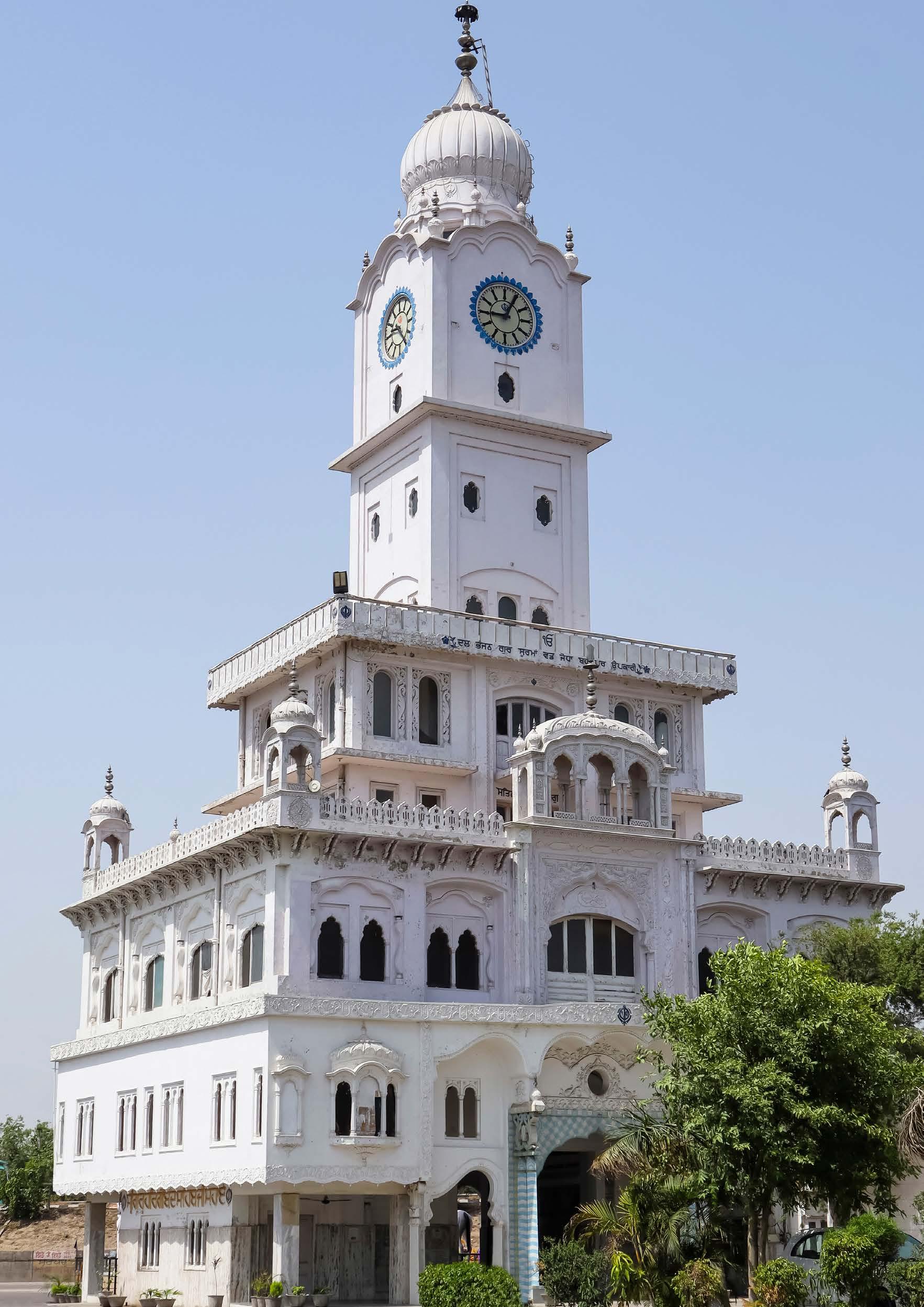






Punjab is an attractive student recruitment market for foreign universities due to the high demand for quality education, the appeal of a foreign degree, and the possibility of settling abroad.
The state’s economic growth, driven by advancements in agriculture (the Green Revolution) and industry, has led to higher disposable incomes and an expanding middle class. As a result, students are increasingly eager to pursue overseas education to gain a global perspective and enhance their career prospects.
The state’s educational excellence is demonstrated through its high Performance Grading Index (PGI) score and significant presence of international curriculum institutions. Private school investments indicate substantial financial capacity for international education.
Contributing 12.5% of India’s international students, Punjab’s academic strength is evidenced by six institutions in India’s top 100, with students demonstrating strong academic foundations, consistently outperforming national averages in critical subjects.
The state government’s commitment is clear through its investments and Punjab’s innovative approach to entrepreneurship education, through its Start-up policy and innovation hubs, creates natural synergies for international collaboration.
For international education providers, Punjab presents a distinctive opportunity to engage with academically strong, financially capable students from an environment that actively supports global education aspirations. The state’s transition towards knowledge and technologydriven enterprises, combined with its entrepreneurial heritage, creates an ideal environment for meaningful international education partnerships.


01
Literacy Rate: Literacy rate - 75.84%
02 03
Economic Growth:
» 5th amongst landlocked states in exports
» GDP (FY 2022-23): $87Bn
» Economic growth rate: 6.8%
Industrial and Service Sector Infrustructure:
» Industrial sector constitutes 25% of the Gross State Value Added
» Expected growth (2022-23): 6.8%
» Leading sub-sector: Manufacturing
» Services sector (46%) employs 38.46% of workforce

Supportive Government Policies
» Strong commitment to education with increased budget allocation
» Financial strength reflected in Punjab’s contribution to India’s GDP
» Initiatives like Rashtriya Uchchattar Shiksha Abhiyan to enhance international standards
» Profitable overseas education market with steady growth in the number of students going abroad
» Collaborations with global institutions contributing to Punjab’s global connectedness
» Investing in Punjab promises a lasting impact on the socioeconomic fabric.
Robust Educational Landscape
» Potent economic growth and rising literacy rates
» Strong commitment to education, reflected in increased government expenditure
» Diverse educational hubs: Ludhiana, Jalandhar, Amritsar, Potiala, Bhatinda, and Hoshiapur
Cultural and Linguistic Diversity
» Rich cultural heritage and spirituality, especially in cities like Amritsar
» Unique blend of cultural and academic experiences attracts students
» International collaborations and diverse cource offerings reflect cultural diversity
Curriculum & Innovation
» Collaboration with international institutions for research and academic programmes
» Focus on innovation in sectors like agriculture technology and precision farming
» Presence of renowned universities

PUNJAB AVERAGE:
33 COLLEGES PER 100,000 PEOPLE
NATIONAL AVERAGE:
30 COLLEGES PER 100,000 PEOPLE
Punjab’s educational landscape showcases remarkable strength in both academic performance and private sector growth.
The state’s excellence in school education is evidenced by its Performance Grading Index score of 927 out of 1000, positioning it as one of India’s top performers in educational quality. This academic prowess is further validated by Punjab’s students consistently outperforming national averages across subjects in the National Achievement Survey, particularly at the 10th-grade level.
The private education sector plays a pivotal role in Punjab’s educational ecosystem. With 51% of students enrolled in private schools, Punjab ranks sixth among all states and Union
Territories in private school enrolment. The state’s robust network of 542 prominent private schools provides diverse educational opportunities for families seeking quality education. Over the last decade, there has been a dramatic shift in higher education preferences. Private college enrolment witnessed a significant surge, more than doubling from 83,079 students in 2010 to 201,868 students in 2020. This substantial increase, coupled with a corresponding decrease in government college enrolment, signals a clear trend in educational preferences among Punjab’s population.

Universities
Nursing Colleges
Per capita income $2,087 in 2022-23 higher than $2,051 at national level.
$87BnState GDP (2023-24),
$31.9Bn (October 2019 to March 2023)



Fifth largest city of Punjab
Oil refinery, thermal power plant, and fertiliser plant
MRSPTU with Thompson Rivers University, Canada, Synergy University, Russia, Concordia University of Edmonton, Canada
AIIMS, Central University of Punjab, Baba Farid College of Management and Technology, Guru Kashi University, Maharaja
Ranjit Singh Punjab Technical University, Akal University.
St Joseph’s Convent Scool, Pathfinder Global School, Delhi Public School
Jalandhar
Known for Golden Temple
Hosiery and textile, embroidery, auto parts industry, bicycle manufacturing, sugar
AGC with Carleton University, Canada, Pittsburgh University, USA, Regenesys Business School, South Africa, University of Toronto; Khalsa University with Nottingham Trent University
Indian Institute of Management, Guru Nanak Dev University, Khalsa University, Sri Guru Ram Das University of Health Sciences, Central Institute of Plastics Engineering & Tech. D.A.V. College, Hindu College, I.K Gujarl Punjab Technical University Campus Amritsar, Amritsar Group of Colleges
Sports goods industries, steel and iron re-rolling mills, rubber goods, surgical instrumnets, hand tools, electric goods, automobile parts, sewing machine factories, and handloom products
Punjab Technical University: Lovely Professional University, DAV College, Jalandhar
Punjab Technical University and University of Fraser Valley, Canada, MoUs with Osaka University Japan, Korea University South Korea, Alliance Francaise, Ftance, Synergy University, Moscow, Russia. LPU has MoUs with top Universities of America, Canada, Germany, Italy, and Romania.

Paper, petroleum products, furniture making, textiles, handicrafts
AGC with Carleton University, Canada, Pittsburgh University, USA, Regenesys Business School, Johannesburg, South Africa, University of Toronto, Mississauga; Khalsa University with Nottingham Trent University
Rayat Bahra Hoshiarpur Campus, I.K.
Gujral Punjab Technical UniversityHoshiarpur Campus, Rayat Bahra Institute of Management, Shri Guru Ram Dass College of Nursing, Guru Ravidas Ayurved University, Guru Nanak Institute of Technology
Sports and pharma, IT, and engineering hub
Doon International Scool, Manav Rachna International Scool, Ryan International School, Mount Carmel School
Palaksha University with Cornell University, UC Berkeley, Cambridge University, ISB with 53 leading schools from countries such as the US, UK, France, South Africa, Israel, Germany, China, South Korea, and Singapore, Chandigarh University has 486 Global Collaborations with top ranking universities from 95 Nations.
Indian Institute of Science Education and Research. National Institute of Pharmaceutical Education and Research, Plaksha University, Indian School of Business, Northern India Institute of Fashion Technology, Army Institute of Law.
Ohio State University, USA, University Venda for Science & Technology, South Africa, University of Leicester, UK, International Center for Agricultural Research in the Dry Areas, Lebanon.
Punjab Agricultural University, Guru Nanak Dev Engineering College, Lovely Professional University
Education, engineering, business, and technology
Engineering and Manufacturing, Textiles, Automobile Components, Defense and Ordnance Factories, Food Processing and Agro-based Industries, Education, Healthcare
ESSCA Ecole de Management, ISCTEUniversity Institute of Lisbon, Frankfurt School of Finance & Management, George Mason University, USA, Curtin University, Australia
Indian Institute of Information Technology, the Indian Institute of Management, and the National Institute of Technology, Bharathidasan University
Punjab’s robust international education ecosystem makes it a prime source of well-prepared candidates for global universities.
The state hosts several prestigious institutions offering International Baccalaureate (IB) and Cambridge International Examinations (CIE) curricula, including Oakridge International School, Ryan International School, and Cambridge International School. These schools aren’t just adopting international curricula, they’re cultivating globallyminded students who are specifically prepared for overseas higher education.
The significant annual investment families make in these schools, with fees ranging from $4,000 to $10,000, demonstrates both their commitment to quality education and their financial capacity to support international higher education. This investment mindset is particularly relevant for universities seeking students who are both academically prepared and financially capable of pursuing international education.
For universities, this means access to a pool of candidates who are:
• Already familiar with international education standards
• Experienced in English-medium instruction
• Prepared for global academic environments
• From families demonstrating strong financial commitment to education
With Punjab’s growing population of internationally educated students actively seeking global education opportunities, universities that establish early recruitment presence in this region position themselves to attract some of India’s most promising and prepared candidates.


Institutions in Top 30 NIRF
Ranking
Architecture and Planning: 3
Law: 3
Institutions in Top 40 NIRF
Ranking
Dentistry: 1
Agriculture and Allied Sector: 3
Institutions in Top 50 NIRF
Ranking
Medical: 2
Institutions in Top 100 NIRF
Ranking
Overall Rankings: 6
Universities: 6
Colleges: 0
Engineering: 6
Management: 5
Pharmacy: 9
Research Institutions: 4
Punjab’s educational institutions demonstrate remarkable academic strength, with six institutions ranking among India’s top 100.
Chandigarh University ranked 32, followed by Thapar Institute of Engineering and Technology at 43, whilst Punjab Agricultural University stands third nationally in agriculture and allied sectors, showcasing the region’s academic excellence.
The state’s significance for international recruitment is particularly compelling: Punjab contributes 12.5% of India’s international students, with an average IELTS score of 5.72 indicating solid English language foundations. This substantial representation in
global education stems from a powerful combination of strong family financial capacity and deeply rooted educational values. Class 10 students consistently outperform national averages in English, Mathematics, and Science, according to the National Academic Survey 2021.
For universities seeking quality international candidates, Punjab presents a unique opportunity to access academically strong students from an environment that actively supports and enables overseas education aspirations.



Punjab’s substantial commitment to educational advancement demonstrates significant momentum in the international education sphere. The state’s financial investment speaks volumes: $2.85Bn for school education, $1.9Bn for higher education, and $10.3Bn for technical education — all aimed at achieving international standards. These investments signal Punjab’s serious commitment to developing globally competitive education infrastructure.
The state’s strategic focus extends beyond traditional academics. With $680Mn dedicated to infrastructure and libraries, alongside $1.2Bn for the Rashtriya Uchchattar Shiksha Abhiyan (National Higher Education Mission), Punjab is actively creating an ecosystem that aligns with global education standards. The substantial $1Bn investment in technical education, including $630Mn for upgrading
Industrial training institutes, reflects a commitment to practical, industryrelevant skills development.
Punjab’s innovative approach to entrepreneurship education sets it apart. The state’s start-up policy actively establishes innovation hubs, incubators, and entrepreneurship development centres across colleges, fostering expertise in high-growth sectors like digital manufacturing, life sciences, agri-food processing, and information technology. This entrepreneurial focus creates natural synergies for international collaboration in research and innovation.
These strategic investments and initiatives position Punjab as a region that not only values international education but is actively building the infrastructure and mindset to support global partnerships.
Education institutions, especially the universities, can play a pivotal role in spreading the culture, traditions, and heritage of the state among the younger generation. The universities of the state have produced great intellectuals, artists, and other eminent people in various fields.”
Punjab Chief Minister, Bhagwant Mann
Punjab presents a unique combination of educational excellence, entrepreneurial spirit, and institutional readiness for international collaboration. The state’s High Education Commission (PHEC) actively promotes internationalisation, while its transition towards knowledge and technology-driven enterprises aligns perfectly with contemporary higher education objectives.
1 3
2 4
Initial Market Entry and Research (0-6 months) Conduct thorough institutional mapping and identify potential partner institutions that align with your strengths. Build relationships with PHEC and arrange exploratory visits to understand the local ecosystem. Focus particularly on institutions already offering international curricula and those with established incubation centres. Partnership Development (6-12 months) Begin with pilot programmes in areas of mutual strength, particularly in innovation and entrepreneurship. Develop clear governance structures and operational frameworks that respect both local and international requirements. Consider starting with summer programmes or joint certificates that can demonstrate quick wins while building trust.
Academic Programme Integration (12-18 months) Design articulation agreements and credit transfer pathways with identified partners. Focus on creating hybrid learning models that leverage both local infrastructure and international expertise. Ensure all programmes align with Punjab’s academic calendar and regulatory requirements. Industry Engagement (Ongoing) Leverage Punjab’s existing incubation networks and industry connections to create meaningful practical components within academic programmes. Develop joint research initiatives in key growth sectors such as digital manufacturing, life sciences, and information technology.

The success of these initiatives depends on maintaining consistent communication, developing local team capacity, and creating sustainable financial models that reflect market conditions.
Regular programme review and adaptation ensure long-term viability, while clear quality metrics help maintain academic standards.
Risk mitigation should focus on establishing clear dispute resolution mechanisms and maintaining enough flexibility to adapt to local conditions. Most importantly, all engagement should acknowledge Punjab’s transition towards becoming a knowledge and technology hub while respecting its strong entrepreneurial heritage.
Punjab stands at a pivotal moment in its educational evolution. The state’s remarkable combination of academic excellence, entrepreneurial spirit, and
commitment to internationalisation creates a compelling opportunity for international education providers. With substantial government investment, a proven track record of students succeeding abroad, and an actively supportive educational ecosystem, Punjab offers more than just another student recruitment market. Punjab presents the potential for meaningful, long-term educational partnerships. As the state continues its transition towards becoming a knowledge and technology hub, those institutions that engage thoughtfully and strategically with Punjab now will be best positioned to benefit from its continuing educational transformation. The foundations are laid; the opportunities are clear; the time for engagement is now.





